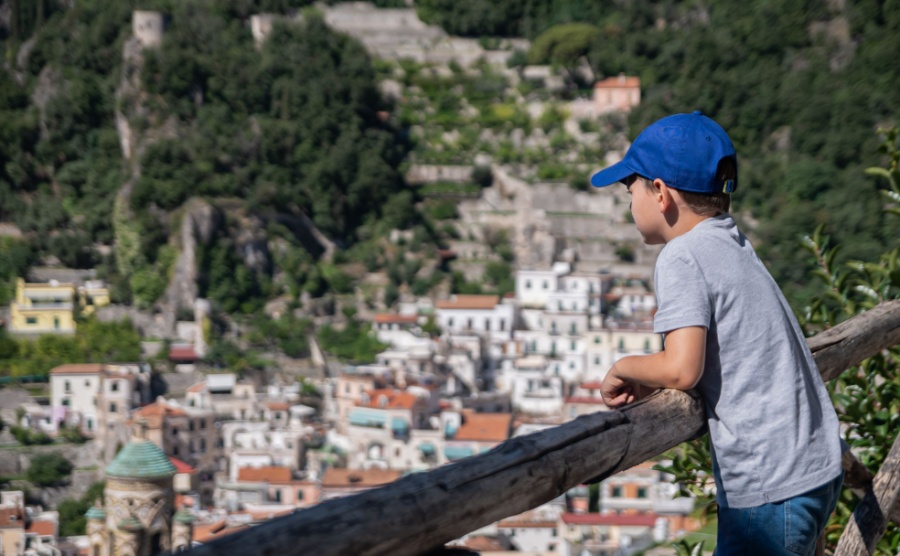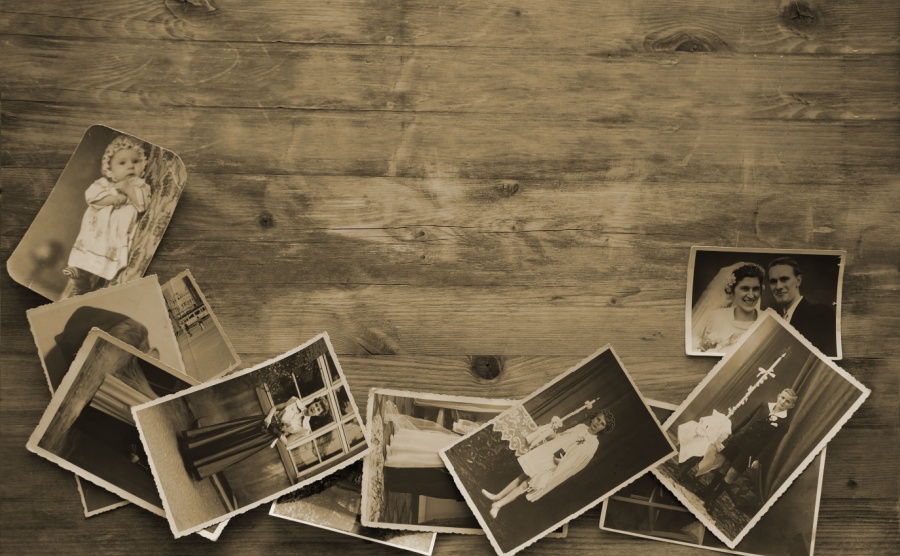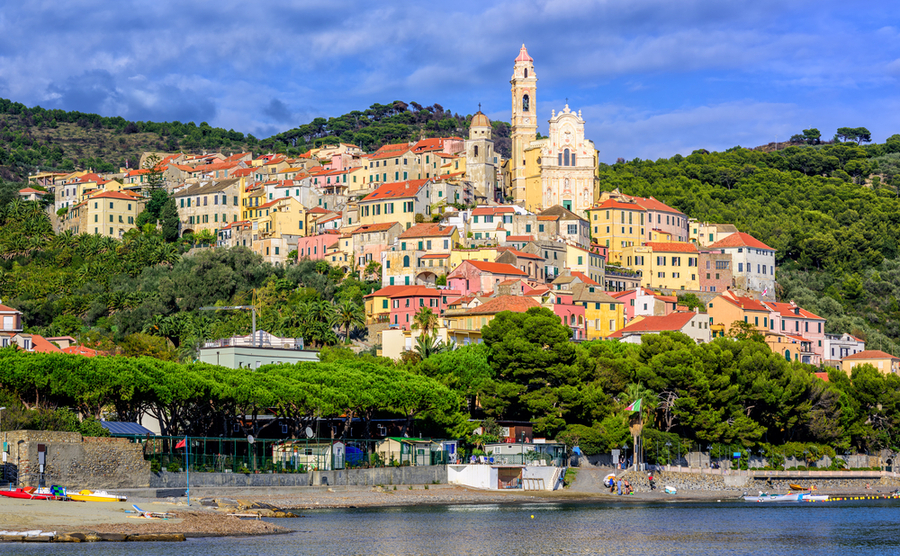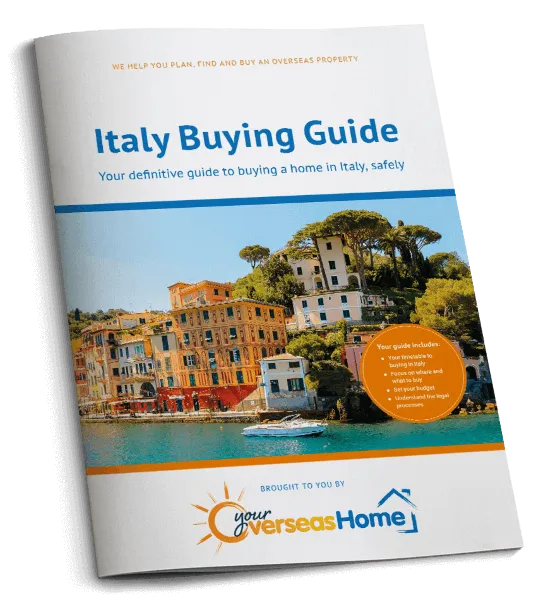Do you feel so drawn to life in Italy that you dream about making your home there? Could it be that you have Italian ancestry? How wonderful would it be to buy a house in the very village your grandparents lived in, see the views they saw, and meet elderly residents that remember them?
With the United Kingdom no longer in the EU, UK citizens, like Americans, are investigating various visa options that allow them to move to Italy. For those fortunate enough to have Italian family ties, citizenship by decent is another possible option. There are many descendants of Italians living abroad who haven’t yet applied for Italian citizenship.
These days, more people are researching their family trees and doing DNA tests. It’s an intriguing pastime to have, especially when you discover where your ancestors lived and how they lived. As a result, ancestry tourism is becoming more popular, as people want to see the places where their ancestors lived. On visiting their ancestral home, some people feel such a connection to the place, that they even decide to buy a property there.

An Italian family in the kitchen
Which countries have the most Italians?
According to Statista in 2022, the highest number of Italian citizens reported to be living abroad, were in Argentina (903,081) followed by Germany (813,650), Switzerland (648,320),Brazil (527,901), France (457,138) United Kingdom (439,411), and USA ( 297,917). There were also 156,777 in Australia and 143,920 in Canada. Yet, that is only part of the story, children born after they emigrated might not have considered applying for joint citizenship.
The largest scale emigration of Italians took place in the 1880s through to the early 1940s. Poverty was the main reason, especially in the rural south. Overpopulation in the cities, and lack of work in the small villages, were other reasons why they decided to move. After World War II and in the late 19th to 20th century many young people moved abroad to find work.
Italians in the UK
Lots of Italians came to Britain in the second half of the nineteenth century as economic migrants. At first, they settled in London, especially in the Holborn area, but by the 1880s they had reached Glasgow and other northern industrial cities.
They didn’t all come directly to Britain either, some came via other European countries. Therefore, even if stories passed on down your family talk about grandfather coming from Spain. A DNA test might still reveal a percentage of Italian, if the generation before came from Italy.
For example, in the 16th century some Italians from Genoa, and the surrounding region of Liguria, went to Gibraltar. Plus, after the British had captured Gibraltar in 1704, Gibraltar attracted workers from all over the Mediterranean. Some of their descendants then may have ended up in the UK. Indeed, many were evacuated to England during World War II, as one British actress discovered.
Find homes in Italy via our property portal.
Surprise Italian Ancestry
When Coronation Street actress, Michelle Keegan investigated her family tree on the TV programme “Who do you think you are?”. She discovered that her Great-Grandmother was evacuated, with her children, from Gibraltar to England during WWII. No surprise there, but, when researchers delved deeper into this side of her family tree, Michelle was told that she had a seven-times great grandfather who came to Gibraltar from Genoa, Italy.
By looking through the baptismal records at the church in Genoa, a researcher was then able to find the entries for her ancestor’s parents, and then trace back even further through to Michelle’s ten-times great grandparents. Understandably, she was very moved by the experience of seeing the church and touching the font where generations of her ancestors had been christened.

A young boy in Italy enjoying the view
Buying the village of your ancestors
Someone who knows that feeling well, is Cesidio di Ciacca, a Scottish lawyer who bought the entire abandoned village where his ancestors once lived. However, before he could buy the houses, he had to track down the 140 owners, from eleven families. Many of whom had emigrated abroad, making tracing them down more difficult. While names could be found on deeds, they didn’t have current contact addresses. Fortunately, there were still elderly people in the area that had kept in contact with some of them. You can read his story here.
A clue could be in their job
The type of work your ancestors did could be a clue to what part of Italy they came from. For example, in the late Victorian era, if they made statuettes they might have come from Lucca. Many Italians from the Lucca area in fact settled in Glasgow. In more recent years Lucca and it’s surrounding villages have become popular with British house buyers in Italy.
Other skilled workers that moved to Britain, were craftsmen in mosaic from Pordenone in north east Italy; Barometer and thermometer makers from Como; and travelling musicians and street performers from Parma in the Emilia-Romagna region.
Between 1891 and 1901 the number of Italian-born people in Britain more than doubled, rising from 11,000 to over 24,000, with over half located in London. Those from Southern Italy tended to be employed as labourers on the roads in London. Although, some Italians from Genoa and Parma also ended up working in cafes in South Wales.
By the twentieth century the Italian community in Britain had mostly become associated with selling ice cream and other food. In fact, during the 1920s to 30s most British towns had an Italian ice cream seller or fish and chip shop. Some even went on to open restaurants. The first trattorias and Italian style coffee bars in Britain were opened in the 1950s, with pizzerias opening in the 1960s.
Close relationship with Italian villages
As the Italians moved into catering, they would invite family and friends over to Britain to work with them. Thus, connections between Italian villages and British towns emerged. For example, we know that several people from Barga, in the province of Lucca, settled in Glasgow and Paisley. By 1910, one successful entrepreneur, Leopoldo Giuliani, brought many youths from Barga to work in his shops.
Today, Barga is nicknamed “the most Scottish town in Italy”. Each year they celebrate their connection with Scotland, with Scottish dancing, bagpipes, a Scottish market and full Scottish breakfast. You can still find property for sale in Barga, priced from €55,000, and the area has become popular with British buyers.
After the War
After WWII, recruitment schemes brought over thousands of Italians to Britain from the southern Italian regions of Campania, Sicily, Calabria, Molise, Puglia and Basilicata. In the 1950s and 60s they also came to work in mining, steel, and brick making. Young Italian women came too, invited to work in textile, rubber and ceramic factories in central and northern England.
Those that came to Bedford, mainly came from Avellino in the Campania region, Campobasso in Molise, and Agrigento in Sicily. In north London, some made a living as market gardeners, growing vegetables.

Family life is central to Italian culture.
Famous people with Italian Ancestors
There are many celebrities that were either born in Italy or have ancestors from there. They include actors, painters, musicians, singers, chefs and dancers. For example, chef and TV presenter Gino d’ Campo was born in Naples; and professional dancer, Vito Coppola, from “Strictly Come Dancing”, was born and raised in Eboli, Salerno.
Singers with Italian ancestry include Lewis Capaldi, whose grandfather came from Picinisco in Lazio; Madonna, whose paternal grandparents, surname Ciccone, emigrated to America in 1919 from Pacentro, in Abruzzo. Plus, Lady Gaga, whose great-grandfather, Antonio Germanotta, went to America in 1904 from Naso, Sicily.
Famous actors who have relatives from Italy include Leonardo Di Caprio, whose grand-parents were from Alife, Caserta, Campania, and John Travolta, whose grandfather was born in Godramo, in the province of Palermo, Sicily. The Italian culture is well known for its strong connection to art, music, dance and great food. Therefore, it is not surprising that so many artistic talents have come from Italy.

Perhaps the family albums might be a good place to start
How do I find out if I have Italian Ancestors?
1. Question family
The first step is to talk to your relatives, to gather any useful information about your family tree. What were their names? Were the names changed at any point? Where were they from? Do they remember any birth, marriage or death dates? Did they keep in contact with anyone in Italy?
2. Gather documents
From these leads you can research passenger lists, review census information, and track down documentation regarding birth, baptism, marriage, and burial records. Remember that Italian women go by their maiden name, even after marriage.
When looking for registered documents in the UK, such as birth, death and marriage certificates, the GOV.UK website can be very helpful. . You can also get an “Apostille” for your UK documents through this website. This legalises the document by attaching an ‘apostille’ (stamped official certificate).
3. Search in Italy
Records of life events are kept at the local Italian town or commune of the location they took place. Therefore, it’s important to find out the name of their hometown. Then, you can contact the Ufficio dello Stato Civile for civil records, the Italian State Archive for military records and census information, or local parishes for Italian Catholic records.
The Ancestors portal (Antenati), provided by the Italian ministry of culture, has digitized some town records. and provides useful links and Ancestry search information. It also includes an interesting “Family Stories” page where peoples have shared their own family history journey in Italy.
4. Use a DNA Kits
If you are uncertain if you have Italian heritage, or want to see if there is long lost family out there, doing a DNA test from an Ancestry website might be useful. Those interested in family genealogical research, should go with a company like MyHeritage or AncestryDNA. Both of these companies, can access a massive database of billions of historical records, and help you trace your roots through the family tree builder. They frequently offer special price deals for less than £50.
If you are lucky, someone in Italy who shares part of your DNA, could have also done a DNA test and be on the database. Potentially, you could find cousins you didn’t know you had. Hopefully, they will share more information with you about your family tree.
Basically, the Ancestry DNA websites take your DNA test result and compare it to people from regions across the world, to see if there are any areas where a lot of people have a DNA similar to yours. However, It should be noted that, the accuracy is largely linked to how many people are in their database, and also how many people from a specific region of the world took the test.
5. Visit your ancestral home town
If you manage to find out the name of the village or town your ancestors came from, that is a really good start. As the most useful records tend to be kept locally, I would recommend going there in person. It’s amazing how much you can find out just by speaking to local families that have lived there for generations.
Even if you don’t have Italian ancestors, it is interesting to hear stories about the family that once lived in the house you have bought. In older properties you can often find clues to their work and lifestyle too. Such as, fireplaces, animal troughs, wells, and hooks for hanging tomatoes etc.
Census records from 1911 to 1991 can be usually found in each comune’s anagrafe (register office). However, the availability to the public varies in each comune. If you want to confirm which house they lived in notarial deeds, and land registers can also be useful.
Church records [registri ecclesiastici] are excellent sources for accurate information on names, dates, and places of births, baptisms, marriages, and deaths. They also include addresses and occupations. Church records can go back as far as 1563, or even earlier. The baptistry in Florence has records from the early 1400s. Although, in some cases records have been destroyed by war, fire, moisture etc.

The medieval hilltop town of Cervo, near Sanremo
Are there properties for sale in the village of my Italian Ancestors?
You can look on Property sales portals for houses for sale. However, if it’s a small village you may get more success going there and asking around. Often, you’ll find a local estate agent, that only deals with that town. If you find a property you want to buy, always get the paperwork checked by a lawyer. The sale must go through a Notary, not through the friendly guy you met in the village bar, even if he suggests he is your cousin.
Can I get Italian Citizenship by descent?
Italian citizenship by descent is based on the principle of “jure sanguinis” (right of blood). The Italian ancestor who emigrated abroad must have been born in Italy after 17th March 1861 (when the Kingdom of Italy was proclaimed), or after their place of birth had been annexed to the Kingdom of Italy. It can be a little more complicated if applying for Citizenship through the maternal line. More information regarding requirements can be found on the Italian Consulate Website in London (Consolato Generale d’italia Londra).
In any case, applications for citizenship by descent should be submitted in the applicant’s country of residence. If you are living outside of Italy, you should contact the Italian consular office responsible for your jurisdiction; if resident in Italy, you should contact the local Municipality (Comune) in Italy.
If you are pursuing dual citizenship based on your Italian heritage, the Italian consulate requires all of the required records to be original documents in the long form (Formato Internazionale) and in Italian. They must also be apostilled. Which means the document is authenticated for use in another country. (The apostille certificate confirms the signature, seal or stamp on a UK document to be genuine so that it will be accepted when presented in another country outside of the UK.)
You have to book an appointment to go in person to the relevant Consular office. Currently the Consular fee is set at €300, which is paid on the day of the appointment. Documents required regarding your Italian Ancestors include birth, marriage and death certificates, naturalisation certificate etc. More information about documents required, can be found on the Italian Consulate’s website in London “Consolato Generale d’italia Londra”.

A smiling family in Italy sharing a meal
Talking from experience
I spoke to a British lady who has been through the process and now lives in Italy with Italian Citizenship. She said:
“I had a bit of a head start because my father was Italian and was already registered with the AIRE (Registry of Italians abroad) in London. I applied through the Italian consulate in London. You can only get an appointment by booking online. When I tried this there was a waiting list of three or more months, but I managed to get a cancellation by signing on every morning when it opened at 7 a.m.”.
“When you have your appointment, you must go in person. Before you go you will need apostilled copies of every official document (birth, marriage, death, etc) relating to your identity and the identities of all those family members between you and the relative through whom you are claiming nationality. Unfortunately, the registry office for my father’s commune was bombed during WWII and there were very few surviving records, but I included a copy of their email and it seemed to suffice”.
“The staff at the consulate speak English very well. Once my application had been approved, I applied for an Italian passport and went back later to collect it. Married women must use their maiden name, but they put a note of the married surname in the passport”.
“There are lots of places online offering to organise getting nationality for you, but for the most part, they are really expensive and do nothing that you can’t do yourself. They can’t go to the appointment on your behalf. In my opinion, the best way to get the documents apostilled is through the address given on the gov.uk website. You can apply for birth certificates etc. from their too”.
“For visitors to Italy, cemeteries are a great source of information and even photos. I saw the house where my father was born. There was a photo of my grandfather on his tomb as well as his dates. My cousins and I learnt a lot about our Italian family when we visited the town. The hotel owner was really helpful and there were lots of people willing to share their memories”.
Living History
Whether you have Italian Ancestors or not, life in Italy can feel like an exciting journey back in time. With so much history and culture at every turn, it is fascinating to learn about a way of life, that your ancestors may have lived, where ever they were born. Family run shops, markets brimming with fresh local produce, picking fruit in your own garden, community celebrations, chatting in the piazza, traditional music and dance, and cafe owners that welcome you like family. These are not just a thing of the past. In towns and villages across the country you can enjoy life in Italy.












